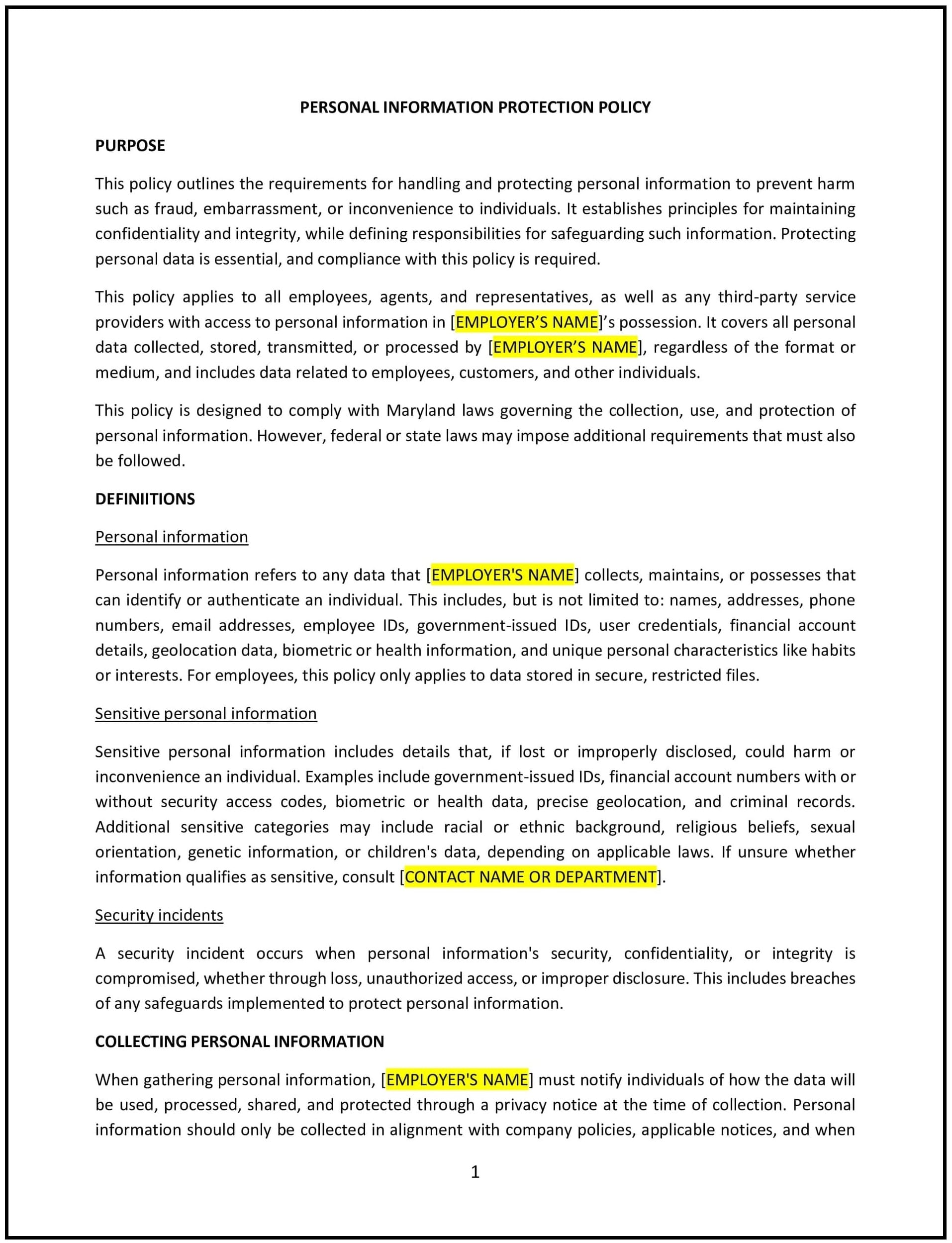Personal information protection policy (Maryland): Free template
Got contracts to review? While you're here for policies, let Cobrief make contract review effortless—start your free review now.

Customize this template for free
Personal information protection policy (Maryland)
This personal information protection policy is designed to help Maryland businesses safeguard sensitive personal data collected from customers, employees, and other stakeholders. It establishes guidelines for data collection, storage, use, and disposal while supporting compliance with applicable Maryland and federal privacy laws, such as the Maryland Personal Information Protection Act (PIPA).
By adopting this policy, Maryland businesses can reduce data security risks, build trust, and maintain compliance with privacy regulations.
How to use this personal information protection policy (Maryland)
- Define personal information: Clearly outline what constitutes personal information, such as Social Security numbers, financial data, health information, or contact details.
- Outline data collection practices: Specify how personal information is collected, such as through online forms, surveys, or transactions.
- Establish data storage protocols: Include guidelines for securely storing personal information, such as encryption, access controls, and secure physical storage.
- Address data usage: Define permissible uses of personal information and prohibit unauthorized access or sharing.
- Include incident response procedures: Detail steps for managing data breaches, including containment, notification, and corrective actions.
- Provide retention and disposal guidelines: Specify how long personal information will be retained and outline secure disposal methods.
- Reflect Maryland-specific considerations: Incorporate state laws, such as breach notification requirements under the Maryland PIPA.
Benefits of using this personal information protection policy (Maryland)
Implementing this policy provides Maryland businesses with several advantages:
- Enhances data security: Reduces risks of data breaches and unauthorized access to sensitive information.
- Builds trust: Demonstrates a commitment to protecting personal information and respecting privacy.
- Aligns with regulations: Meets Maryland-specific and federal data protection requirements, such as PIPA and applicable industry standards.
- Reduces liability: Mitigates legal and financial risks associated with data security incidents.
- Encourages accountability: Establishes clear roles and responsibilities for managing personal information.
Tips for using this personal information protection policy (Maryland)
- Train employees handling data: Ensure staff understand data protection protocols and their responsibilities.
- Use secure systems: Implement encryption, firewalls, and access controls to protect data.
- Monitor compliance: Regularly audit data management practices to identify and address vulnerabilities.
- Provide breach training: Train managers and IT personnel on how to respond to data breaches effectively.
- Stay updated: Update the policy to reflect changes in Maryland laws or advancements in data security technology.